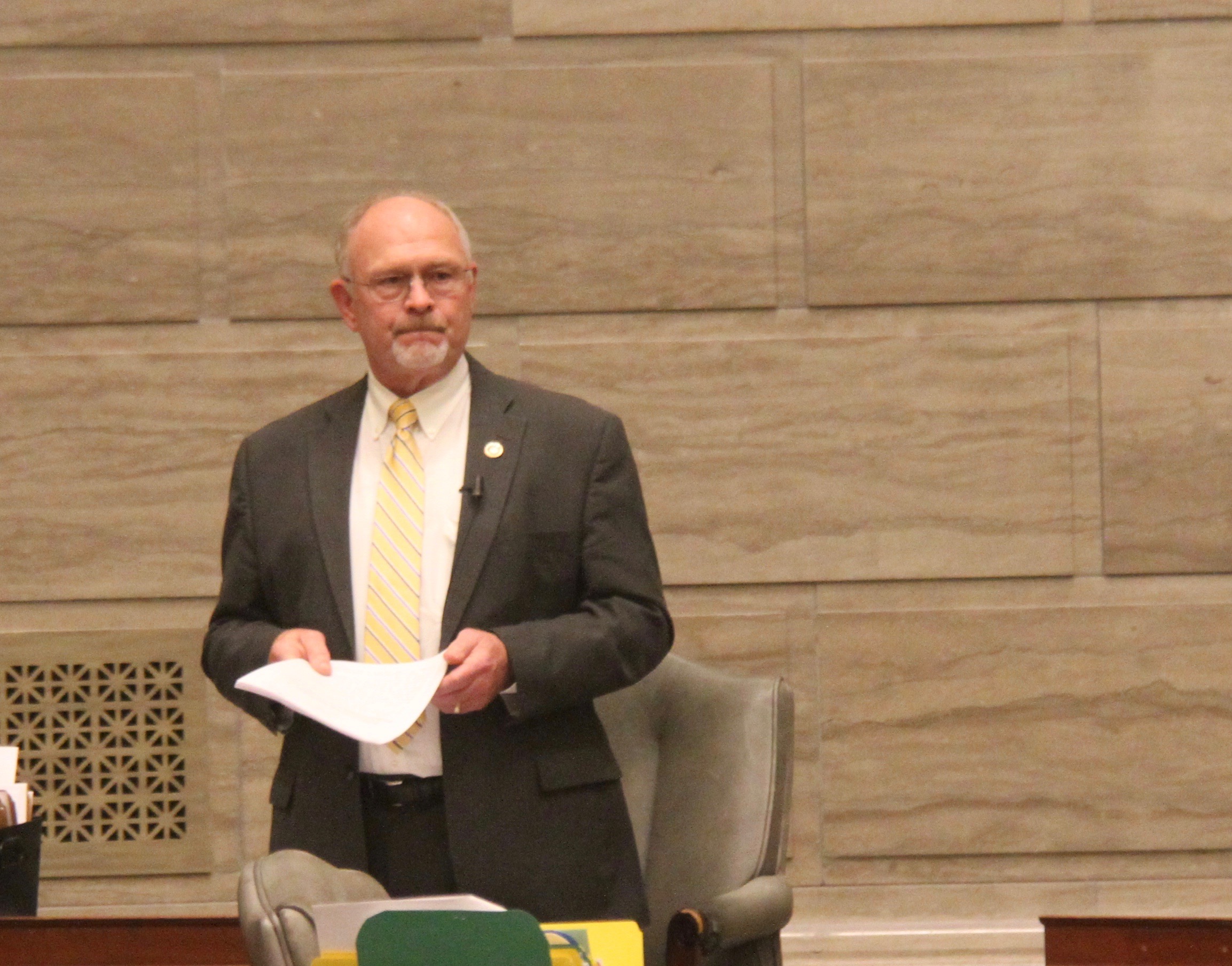JEFFERSON CITY, Mo. — The first session of the 100th General Assembly had been underway for less than one 24 hours before all business came to a stand-still in the Missouri Senate. Sens. Doug Libla and Gary Romine led a seven-hour filibuster on the second day of the 2019 regular session.
But why did the two Republican Senators stand against their own party leader? Because they didn’t agree two proposed rule changes were in the best interest of the people.
On Thursday, following a ceremonial first day, President Pro Tem Dave Schatz presented Senate Resolution 19 to his fellow lawmakers. The measure proposed a multitude of rule changes including renaming the Committee on Governmental Accountability and Fiscal Oversight as the Committee of Fiscal Oversight and increasing the size of three committees.
“You do a filibuster lots of times to gain compromise,” said Libla. “You do a filibuster and then you try to compromise it out.”
The dispute focused on two of the rule changes proposed by Schatz. One modification was to increase the number of members on the appropriations committee and the other would alter the requirements for an amended bill to be withdrawn from the floor.
“Rule 88 does not need to be changed,” said Romine.
Rule 88 states that after a motion is stated by the chair, it is deemed to be in possession of the senate, but may be withdrawn at any time before a decision or amendment, but afterwards only with the consent of the senate. The proposed change would allow the bill sponsor or handler to withdraw the measure at any time, even after being amended.
The rule has been in place since 1950 and is a “good tool” for the Senate, according to Romine.
“I do not believe we had ample time to understand the ramifications of the rule change,” said Romine. “Once the change takes place, to fix it is rather extreme and difficult.”
The other proposed change that was a focal point of the opposition was increasing the appropriations committee from 11 to 13 members.
“You are gathering information by fire hose lots times. You go from one committee to the next committee to the next committee to the next committee to the next committee…” said Libla.
And by increasing the number of lawmakers on the committee it further stretches the Senators thin. Libla noted that running from committee to committee decreases the ability to vet bills and allow citizens to testify on bills.
Often times committees have to limit the amount of time Missourians testify on bills, wait to start until a quorum is present, or have Senators jumping in and out. All of that is a disservice to those that come to testify, according to Libla.
“Lot of times I feel like our committees are too rushed up,” said Libla.
“To me, the most important part of the Senate process is the committee hearing process, it’s the only time the public gets a chance to speak on a bill,” said Romine.
Missourians that come to testify on a bill can travel for hours, some acquire hotel rooms if they are traveling a far distance, and some take off work, all just to make their voices heard, according to Libla.
“We actually had to cancel a committee meeting last year because of not being able to get a quorum put together. The sad part about that is that we didn’t know that until people were already in the room…so that citizen leaves here feeling like their views were not heard,” said Libla.
So, to work towards a compromise on changes they opposed, Libla and Romine led a filibuster. And in the end, both sides compromised.
Schatz stripped the change to Rule 88 from the resolution and the appropriations committee got two new members.
“We compromised,” said Romine. “We voiced our opinion and our concern. The compromise was that we will take Rule 88 out for the time being until it has a chance to be vetted more… and we conceded, on what I still feel isn’t a very good idea, [the committee increase].”

Alisha Shurr was a reporter for The Missouri Times and The Missouri Times Magazine. She joined The Missouri Times in January 2018 after working as a copy editor for her hometown newspaper in Southern Oregon. Alisha is a graduate of Kansas State University.



